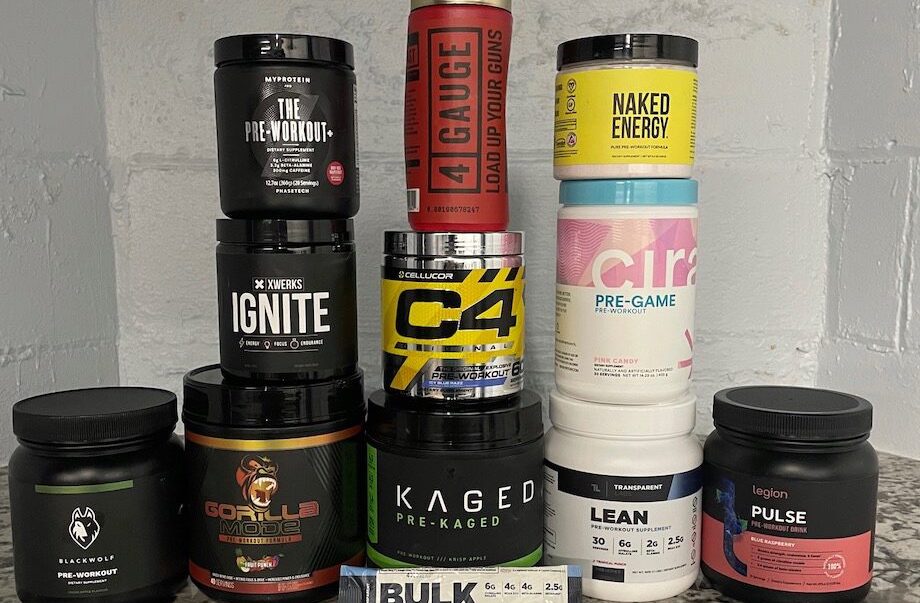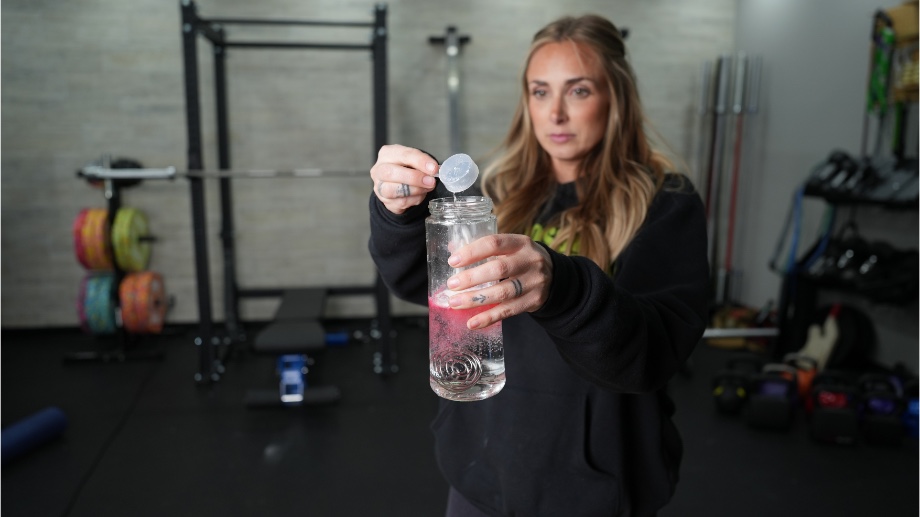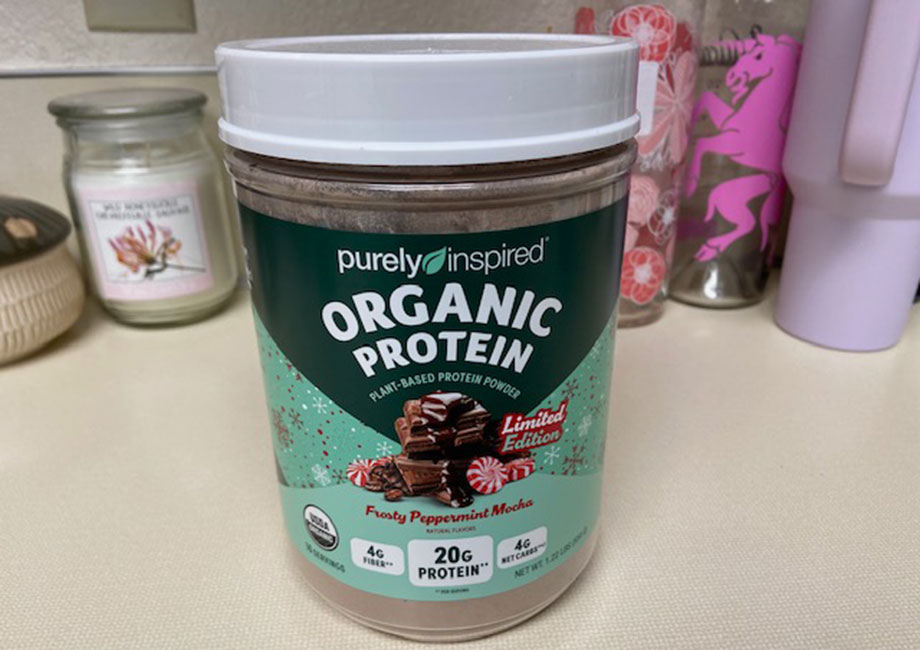I see you over there, putting in the work and doing all the right things to maximize your training sessions. Getting enough sleep—check. Staying hydrated—check. Well-balanced nutrition—check. Prioritizing recovery—check.
But if your workouts need a little more pep in their step, you might be on the hunt for a high-quality pre-workout supplement. Pre-workout supplements can help take your exercise performance to the next level, but not all pre-workouts are created equal.
Finding a supplement you can trust can be challenging in a market that seems to get more saturated with products by the minute. Thankfully, we can look past all the marketing hype and determine what’s what from the ingredients list.
Together in this article, we will review the best pre-workout ingredients to look for when incorporating dietary supplements into your routine. Your fitness goals are within reach, and the right ingredients can make all the difference.
There are hundreds of ingredients that supplement companies promise will boost your physical performance, improve muscle recovery, and change your body composition. However, only a handful of these have the scientific evidence needed to walk the walk instead of just talk the talk. So let’s focus on those.
Medical disclaimer: This article is intended for educational and informational purposes only. It is not intended as a substitute for medical advice. For health advice, contact a licensed healthcare provider.
Caffeine
Caffeine is one of the most widely studied stimulants in the fitness arena. It’s a popular ingredient in many pre-workout supplements for its purported benefits on endurance and focus. According to the International Society of Sports Nutrition1, caffeine has been shown to improve athletic performance in both trained and untrained individuals.

In addition to improved physical performance, caffeine can also improve cognitive function. For example, pre-workout supplements that contain caffeine can help improve your attention to detail and vigilance. So how much caffeine should your pre-workout contain?
The answer may vary depending on who’s asking. Studies indicate effective doses of caffeine are in the range of 3-6 milligrams per kilogram of body mass. So your ideal serving of caffeine will depend on your body weight. Of course, it’s important to note that the Food and Drug Administration2 recommends no more than 400 milligrams of caffeine daily. So if you’re a big coffee drinker, you may need to adjust your portions.
L-Theanine
Many of us aren’t surprised to hear of caffeine’s role in a pre-workout supplement. But did you know that L-theanine, an amino acid found in green tea, can actually bolster the cognitive impacts of caffeine?
Yep! Research, such as this 2021 article3, indicates that the combination of caffeine and L-theanine can improve short-term sustained attention and overall cognition. This is especially ideal for those who want to maximize their caffeine intake without overdoing it. So, if you have laser focus at the gym, you might need to thank the L-theanine in your pre-workout.
L-Citrulline
L-citrulline is a non-essential amino acid often included in pre-workout ingredients because of its capability to convert to L-arginine, which boosts nitric oxide production. Nitric oxide is a compound that our bodies naturally produce to help relax our blood vessels and improve blood flow. It’s this mechanism that’s earned the amino acid a presence in many of the best pre-workout products on the market.
As blood flow improves, nutrients and oxygen can reach your muscles more efficiently. And more appropriately nourished muscles mean greater pumps and improved energy levels during workouts.
Citrulline-Malate
Remember the L-citrulline we discussed above? Well, citrulline-malate is a combination of L-citrulline and malic acid. Because of L-citrulline, the compound acts as a nitric oxide enhancer associated with improved blood flow to active muscle tissue.
However, research suggests that malate can boost the production of adenosine triphosphate, otherwise known as ATP, by mitigating blood lactate. In addition, a recent study4 found that participants who ingested citrulline-malate could complete more reps in each of the exercises they attempted, thus indicating a role in reducing muscle fatigue.
Beta-Alanine
Beta-alanine isn’t just any old amino acid. Research shows that beta-alanine can improve muscle endurance, reduce fatigue, and even help promote muscle growth. So, it’s no surprise that it’s found in many of the market’s top pre-workout formulas.
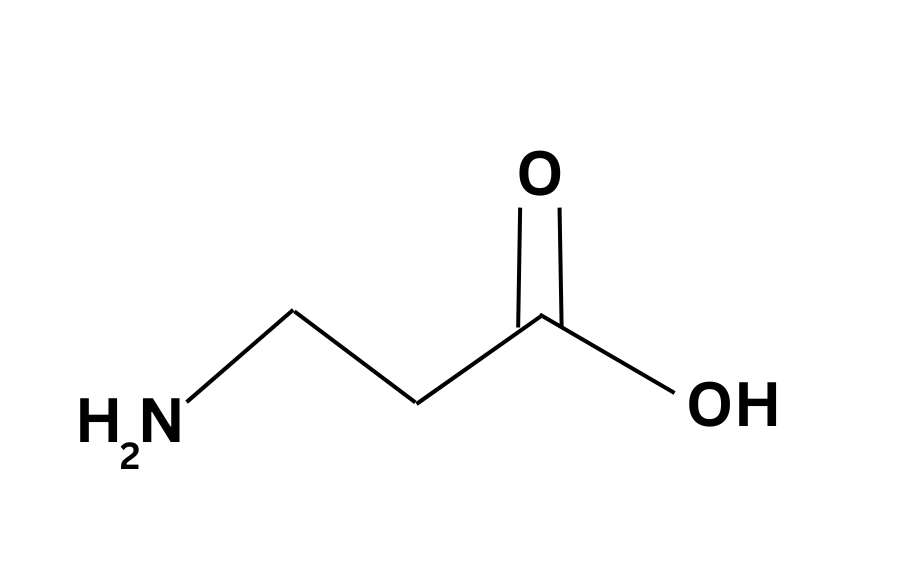
The International Society of Sports Nutrition discovered that supplementing with a recommended dose of 4-6 grams of beta-alanine daily5 can augment muscle carnosine contractions. Why does that matter? Carnosine is involved in several bodily roles that can impact athletic performance, most notably in hydrogen ion buffering.6 The accumulation of hydrogen ions can negatively affect muscle endurance. Since high-intensity exercise contributes to the build-up of hydrogen ions, beta-alanine can be a beneficial ingredient in your pre-workout routine.
Betaine Anhydrous
Betaine anhydrous is a chemical that naturally occurs in the human body and can be found in certain foods, like spinach, cereals, seafood, and wine. However, it’s most commonly associated with beetroot.
Supplement companies often include beetroot in their ingredients to harness its powerful pre-workout properties. For example, beets contain nitrates that help improve blood pressure, increase endurance, and boost oxygen uptake.
Since betaine anhydrous comprises the amino acid glycine attached to three methyl groups, you may also hear it referred to as trimethylglycine. In addition, betaine anhydrous helps the body process homocysteine, another amino acid involved in the function of many body parts, such as our blood, brains, bones, eyes, heart, muscles, and brains.
The buildup of homocysteine in the bloodstream can lead to fatigue, dizziness, and weakness. And since exercise can increase homocysteine levels7, supplementing with betaine anhydrous can help reduce impending fatigue and improve your power output.
Creatine
Creatine is naturally formed in the body from the amino acids glycine, methionine, and arginine. It can also be created when we eat foods containing the same amino acids. Many people rely on it as an ergogenic aid8 because of its capability to improve work capacity through its role in energy production.
ATP is the body’s primary fuel for energy. Muscle contractions are powered by ATP, so as we draw from our creatine stores to rock our workouts, we start to lose our oomph. Therefore, many athletes will choose a pre-workout powder with creatine to ensure they have adequate stores for their training session and beyond.
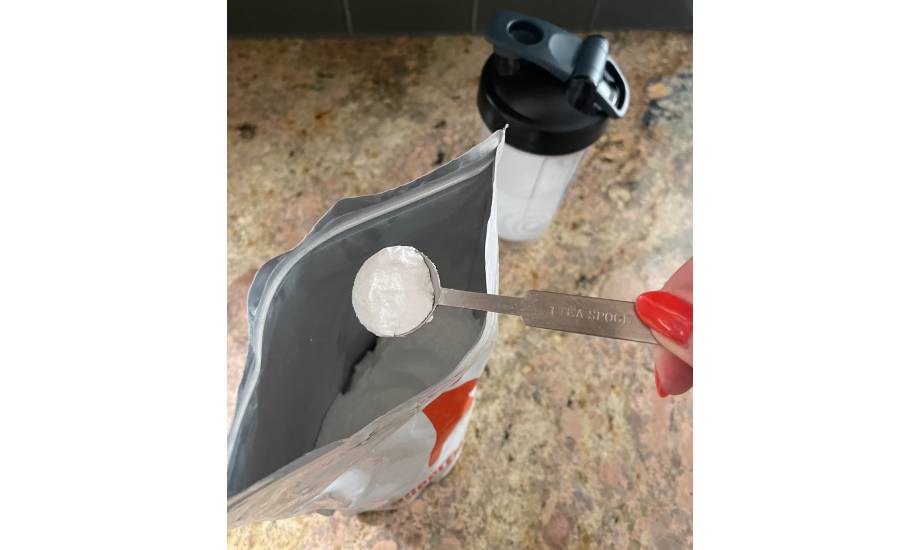
Research also indicates a good connection between creatine and recovery after exercise-induced muscle damage. Studies9 show that a dosage of 3-5 grams of creatine daily over four weeks helped increase creatine stores, improve muscle performance, build muscle, and support muscle recovery.
RELATED: Best Creatine Supplements
BCAAs
Branched-chain amino acids are one of the most common ingredients in pre-workout supplements. And what exactly are these popular BCAAs?
Branched-chain amino acids10 include isoleucine, leucine, and valine, and they have been shown to reduce muscle soreness and muscle wasting, especially during weight-loss phases. However, they are most famous for their role in muscle protein synthesis and muscle mass-building.
BCAA supplementation can help improve stamina by sparing your muscle glycogen stores during exercise, allowing you to challenge yourself even more during your workout. Whether weightlifting, running, biking, or doing any of the other training options available, BCAAs can be a game changer.
Electrolytes
Since we lose electrolytes when we sweat, they get a lot of hype in the post-workout routine. But they are also crucial before and during exercise for more reasons than just hydration alone. Electrolytes are essential for many bodily functions, including muscle contractions, nerve signaling, and regulating blood pressure.
Of course, we can replenish electrolytes with sports drinks during recovery, but many pre-workouts tackle our needs preventatively. Pre-workouts that include an electrolyte blend—typically potassium, sodium, and magnesium—can support you during workouts by increasing your body’s stores before you even start dripping sweat.
What Ingredients to Avoid
While pre-workout supplements are known for their performance-enhancing effects, they may also cause unwanted side effects. To reduce the prevalence of these side effects, there are certain ingredients to limit or avoid.
For example, too much of a good thing isn’t necessarily a good thing. Excessive amounts of caffeine can give you jitters, and too much beta-alanine can result in an uncomfortable tingling sensation. Therefore, do not exceed the recommended doses of products that contain these ingredients unless otherwise directed by your doctor.
Additionally, you might also consider pre-workouts without artificial flavors or sweeteners. While synthetic ingredients aren’t necessarily harmful, many times they aren’t necessary. And some artificial sweeteners have been known to cause gastrointestinal distress. We can all agree that’s the last thing you need while working out.
On the same note, avoid pre-workouts with unnecessary fillers. These ingredients are often used as more of a marketing technique. You think you’re getting more bang for your buck, but fillers don’t add much nutritional value. Instead, they are usually used to add flavor, texture, or shelf-life to a product and can cause unwanted blood sugar spikes or disruptions in our gut microbiome.
Lastly, avoid ingredients that contain proprietary blends, as manufacturers use proprietary blends to disguise what they have in their products. While that may work for their bottom dollar, it doesn’t benefit customers. Since a proprietary blend is specific to the manufacturer’s product, they’re not required to divulge how much is in there, which means you have no idea how much you’re consuming.
Third-Party Testing
Here at GGR, we’re big fans of third-party testing. Third-party testing ensures that non-biased labs test products for quality and safety. This is especially important regarding ingredients. When spending your hard-earned money on a product, you want confidence in what you purchase and put in your body.
Dietary supplements are regulated post-market, which means that no regulatory body approves the label’s accuracy or the safety of the product’s contents before they’re sold to you and me—i.e., these products aren’t regulated by the FDA. Instead, look for products that have undergone third-party testing to ensure that it doesn’t contain heavy metals, toxins, or dangerous portions of otherwise safe ingredients.
Best Pre-Workout Ingredients: Final Thoughts
Pre-workout supplements can be a great addition to your fitness routine, but you’re wise to do your research first. Since the FDA doesn’t regulate these dietary supplements, it’s up to us as consumers to check the ingredients and ensure we feel comfortable putting them in our bodies.
Whether you’re into bodybuilding, endurance training, CrossFit, or a little bit of everything, pre-workout ingredients can make all the difference in your training session. While the list above is a great place to start, the ideal pre-workout supplement for your individualized needs may or may not contain all the discussed ingredients. If you have questions about your pre-workout needs as they impact your fitness goals, consider talking with a registered dietitian, nutritionist, or certified personal trainer.
- Pre-workouts cannot replace adequate sleep, proper hydration, and a well-balanced diet.
- Read nutrition labels and understand serving sizes before taking a pre-workout supplement.
- Avoid pre-workout supplements with proprietary blends.
- Don’t overdo it on caffeine.
- BCAAs can help support a reduction in muscle soreness and wasting.
- Pre-workouts with electrolytes can help support hydration.
RELATED: Best Pre-Workout for Men
Best Pre-Workout Ingredients: Q&A
What is the most important ingredient in pre-workout?
Most of us take pre-workout supplements to boost energy and mental focus during workouts. For that reason, the most important ingredient in pre-workout may be caffeine. However, stimulant-free pre-workouts can also be viable options. They may just provide a different effect than those with caffeine.
What are the best ingredients to make your own pre-workout?
If you plan to make your pre-workout supplement at home, consider starting with a base of caffeine, L-citrulline, beta-alanine, and creatine. This list of ingredients should cover all your bases. For example, caffeine can help your mental focus, L-citrulline can improve your blood flow, beta-alanine can improve muscle endurance and promote muscle growth, and lastly, creatine plays a role in energy production.
What ingredients give you a pump?
L-citrulline is famous for its ability to increase nitric oxide production, thus improving blood flow and translating to muscle pumps—not to mention higher energy levels when combined with malate.
These statements have not been evaluated by the Food and Drug Administration. This product is not intended to diagnose, treat, cure, or prevent any diseases.
References
- Guest, N. S., VanDusseldorp, T. A., Nelson, M. T., Grgic, J., Schoenfeld, B. J., M. Jenkins, N. D., Arent, S. M., Antonio, J., Stout, J. R., Trexler, E. T., Smith-Ryan, A. E., Goldstein, E. R., Kalman, D. S., & Campbell, B. I. (2020). International society of sports nutrition position stand: Caffeine and exercise performance. Journal of the International Society of Sports Nutrition, 18. https://doi.org/10.1186/s12970-020-00383-4
- Commissioner, O. of the. (n.d.). Spilling the beans: How much caffeine is too much? U.S. Food and Drug Administration. Retrieved March 4, 2023, from https://www.fda.gov/consumers/consumer-updates/spilling-beans-how-much-caffeine-too-much
- Sohail, A. A., Ortiz, F., Varghese, T., Fabara, S. P., Batth, A. S., Sandesara, D. P., Sabir, A., Khurana, M., Datta, S., & Patel, U. K. (2021). The Cognitive-Enhancing Outcomes of Caffeine and L-theanine: A Systematic Review. Cureus, 13(12). https://doi.org/10.7759/cureus.20828
- Wax B, Kavazis AN, Luckett W. Effects of Supplemental Citrulline-Malate Ingestion on Blood Lactate, Cardiovascular Dynamics, and Resistance Exercise Performance in Trained Males. J Diet Suppl. 2016;13(3):269-282. doi:10.3109/19390211.2015.1008615
- Trexler, E. T., Smith-Ryan, A. E., Stout, J. R., Hoffman, J. R., Wilborn, C. D., Sale, C., Kreider, R. B., Jäger, R., Earnest, C. P., Bannock, L., Campbell, B., Kalman, D., Ziegenfuss, T. N., & Antonio, J. (2014). International society of sports nutrition position stand: Beta-Alanine. Journal of the International Society of Sports Nutrition, 12. https://doi.org/10.1186/s12970-015-0090-y
- Perim, P., Marticorena, F. M., Ribeiro, F., Barreto, G., Gobbi, N., Kerksick, C., Dolan, E., & Saunders, B. (2019). Can the Skeletal Muscle Carnosine Response to Beta-Alanine Supplementation Be Optimized? Frontiers in Nutrition, 6. https://doi.org/10.3389/fnut.2019.00135
- Deminice, R., Ribeiro, D. F., & Trevisan Frajacomo, F. T. (2015). The Effects of Acute Exercise and Exercise Training on Plasma Homocysteine: A Meta-Analysis. PLoS ONE, 11(3). https://doi.org/10.1371/journal.pone.0151653
- Ribeiro F, Longobardi I, Perim P, et al. Timing of Creatine Supplementation around Exercise: A Real Concern?. Nutrients. 2021;13(8):2844. Published 2021 Aug 19. https://doi:10.3390/nu13082844
- Wax, B., Kerksick, C. M., Jagim, A. R., Mayo, J. J., Lyons, B. C., & Kreider, R. B. (2021). Creatine for Exercise and Sports Performance, with Recovery Considerations for Healthy Populations. Nutrients, 13(6). https://doi.org/10.3390/nu13061915
- VanDusseldorp, T. A., Escobar, K. A., Johnson, K. E., Stratton, M. T., Moriarty, T., Cole, N., McCormick, J. J., Kerksick, C. M., Vaughan, R. A., Dokladny, K., Kravitz, L., & Mermier, C. M. (2018). Effect of Branched-Chain Amino Acid Supplementation on Recovery Following Acute Eccentric Exercise. Nutrients, 10(10). https://doi.org/10.3390/nu10101389


